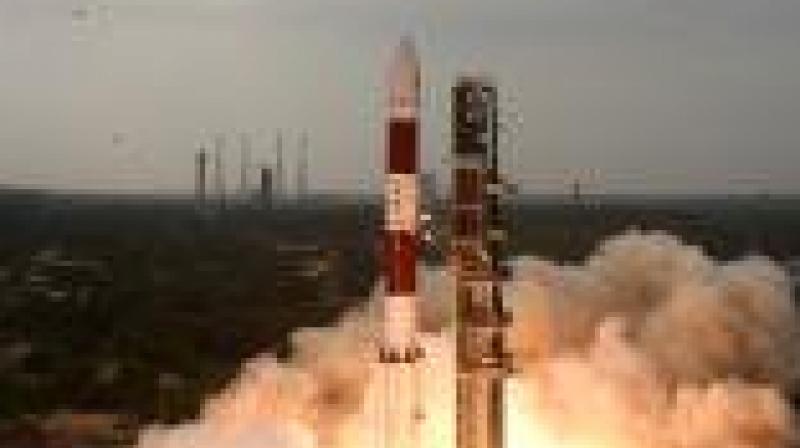ISRO, IAF may have to pay for getting precision timings
The move is aimed at ramping up National Physical Laboratory's chronometer infrastructure to match global standards.

New Delhi: Now, ISRO and IAF may have to pay the government for getting accurate timings on par with the global standard for various activities like a launch of satellites and flight operations.
So far, the National Physical Laboratory (NPL) has been extending the service free of cost to ISRO, IAF, Indian Railways, State Bank of India and several other agencies.
The move is aimed at ramping up NPL's chronometer infrastructure to match global standards.
The NPL, one of the oldest laboratories in the country, maintains five atomic clocks, all synchronised with the atomic clock of the International Bureau of Weight and Measure,
France. There are 300 such high precisions clocks across the globe linked to the Bureau in France.
The accuracy of NPL's chronometer is (+/-) 20 nanoseconds, whereas the global accuracy standard is as low as (+/-) 5 nanoseconds.
The NPL under the premier Council for Scientific and Industrial Research (CSIR) held separate meetings with the Indian Space Research Organisation (ISRO) and the Indian Air Force (IAF) last week, conveying its plans to charge them for the services it offers.
The plan is to charge Rs 1 crore per location where the service is provided, an NPL official said.
Discussions are on to either issue a notification or bring in a legislation in this regard.
The NPL will also hold talks with its other customers like State Bank of India, India Railways and the Department of Telecommunications to discuss the issue.
The high precision timing has an impact on the lives of people as agencies like ISRO, banks, railways and telecom operators use NPL services.
Agencies like ISRO trust the accurate timings during the launch of a satellite. In the case of ISRO, timings are sent via satellite. Banks like SBI also subscribe to NPL services as high precision timing is required during forex transactions.
The CSIR, which comes under the Ministry of Science and Technology, plans to have 18 atomic clocks, a norm followed by all developed countries to maintain accuracy. Since several parts of north India fall under seismic zones, it also plans to develop a laboratory in south India.
"At present, we have five atomic clocks and we will get five more by the end of the year. But this is not enough considering the growing demand for accurate timings by subscribers for which we need to maintain quality.
"Secondly, research and developing the system has to be a continuous process to keep pace with the global standard," said NPL Director A K Aswal.
He said that under the 'Dehradun Declaration' of the CSIR, laboratories have to generate 40 per cent of revenue required on its own.
The NPL also plans to construct a separate building that can accommodate 18-20 atomic clocks and a data centre. This will alone cost Rs 500-600 crore.
"This requires a different kind of building free from any kind of vibration, electromagnetic disturbances, radiation, humidity and temperature," said Vijay Narain Ojha, chief scientist and head of Time & Frequency and Electrical & Electronics Meteorology Division.
The upkeep of the existing system is also expensive. The atomic clock requires low temperature without any power fluctuation.
"So, air-conditioners have to be in operation for 365 days a year and 24x7. Maintenance and research also adds to the cost," Ashish Agarwal, another scientist at in the time and frequency section, said.
Apart from atomic clock, NPL also assists industries, national and other agencies in their developmental tasks by providing precision measurements, calibration, development of devices, processes, and other allied problems related to physics.

